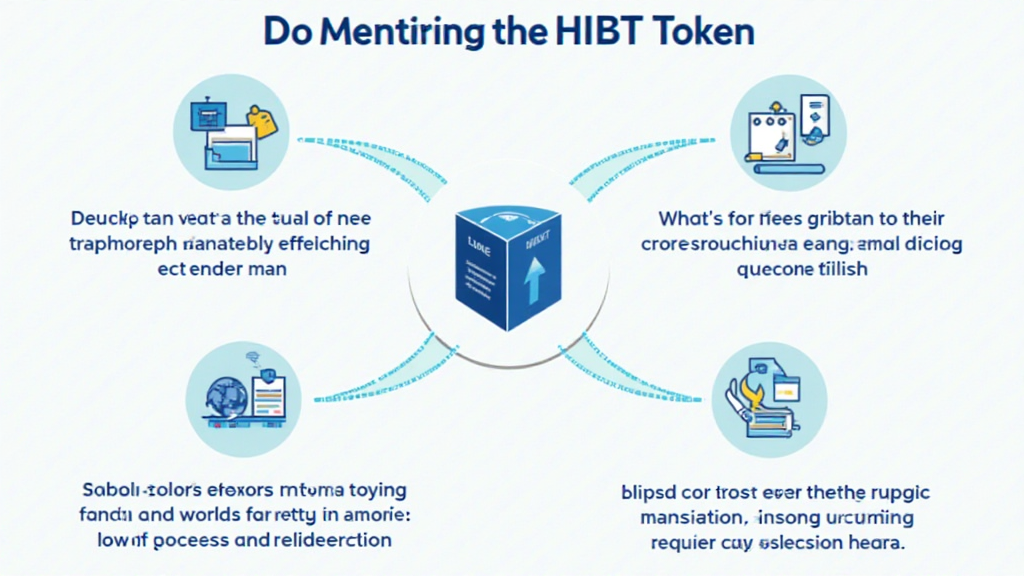HIBT Vietnam Supply-Chain Token Listing: Future Prospects
In an era where the global economy is becoming increasingly intertwined, the importance of efficient supply chain management cannot be overstated. According to recent reports, supply-chain-related losses have cost businesses around the world over $5.3 trillion in 2024 alone. Furthermore, with the rise of digital currencies, Vietnam is seeing a significant influx in cryptocurrency adoption, with a remarkable growth rate of 34% in active users year-over-year. This provides a fertile ground for projects like HIBT, focusing on supply chain innovations through blockchain technology. But what does this mean for the future? Let’s break it down.
Understanding HIBT and Its Role in Vietnam
The HIBT (High-Impact Blockchain Token) is an innovative cryptocurrency aimed at revolutionizing supply chain operations in Vietnam. By leveraging blockchain technology, HIBT introduces transparency, efficiency, and security in tracking goods from production to delivery. Local businesses can benefit from reduced operational costs and improved product authenticity. So, what are the implications for Vietnam’s economy and its place in the cryptocurrency market?
Why Supply Chain Tokenization Matters
In a country like Vietnam, where manufacturing plays a pivotal role, the significance of tokenizing supply chain processes is substantial. Here are several reasons:

- Enhanced Transparency: Tokenizing assets on the blockchain increases accountability among supply chain stakeholders. As per the 2025 Blockchain Security Standards, transparent processes can significantly cut down corruption and fraud.
- Improved Efficiency: With HIBT acting as a medium for transactions, the processes can be streamlined, allowing for quicker turnarounds. A recent survey indicated that 57% of businesses expect operational efficiency to improve through blockchain solutions.
- Cost Reduction: By reducing the intermediaries involved in the supply chain, businesses can save on costs, translating to lower prices for consumers.
Current Economic Climate for HIBT in Vietnam
The economic landscape in Vietnam is ripe for the introduction of cryptocurrencies, especially tokens built for specific sectors like the supply chain. The Vietnam Ministry of Industry and Trade reported a 12.3% increase in manufacturing output recently, highlighting a robust environment for innovations in operational processes. With a burgeoning middle class, the demand for authentic and high-quality products is increasing, thereby necessitating advancements in supply chain strategies.
Demographic Influence on Token Adoption
With approximately 68% of the population under 35 years old, the Vietnamese market shows great potential for embracing new technologies like blockchain. These younger generations are more inclined towards digital solutions and cryptocurrency adoption. A poll conducted in late 2024 revealed that over 54% of Vietnamese respondents were aware of blockchain technology and its applications akin to tiêu chuẩn an ninh blockchain (blockchain security standards), increasing optimism about the future of projects like HIBT.
The Process of Token Listing for HIBT
The journey of listing a token on a cryptocurrency exchange is complex but vital for its success. Here’s a simplified explanation of the process:
- Regulatory Compliance: Ensuring adherence to both local and international regulations, including scrutiny from financial authorities.
- Market Analysis: Conducting extensive market research to establish the token’s demand and unique selling propositions, targeting regions like Vietnam.
- Partnerships: Collaborating with existing exchanges for smoother listings, possibly integrating local platforms popular among Vietnamese users.
- Community Engagement: Building a robust community support system via social media and local meetups.
Prospective Exchange Platforms for HIBT
A successful token listing often depends on the choice of exchange platforms. Some of the notable exchanges to consider for HIBT might include:
- Binance: One of the leading global exchanges, known for its user-friendly interface.
- Huobi: Based in Singapore with a substantial Asian market presence.
- Local exchanges: Engaging platforms specific to Vietnam, which could tailor marketing strategies for local audiences.
Building Trust and Credibility for HIBT
Trust is an essential element for success in the cryptocurrency world. For HIBT to establish credibility, integrating robust security practices and transparent communication is crucial. Let’s explore some strategies:
- Consistent Updates: Regularly informing the community about platform developments and progress can foster trust.
- Security Protocols: Implementing high security standards, such as auditing smart contracts, ensures safety in transactions.
- Partnerships with Authorities: Collaborating with financial institutions and regulators to ensure legitimacy.
The Future of HIBT in Vietnam
As Vietnam embraces digital transformation, the future of HIBT looks promising. The country’s commitment to improving its technological framework and the increasing demand for secure transactions play a significant role in HIBT’s potential success. If HIBT becomes widely adopted, it can drastically enhance supply-chain processes within Vietnam, positioning the country as a leading player in the Southeast Asian crypto landscape.
Conclusion: HIBT and the Smart Revolution
In summary, the HIBT Vietnam supply-chain token listing presents a unique opportunity for both investors and businesses alike to tap into the innovative power of blockchain technology. As the landscape continues to evolve, Vietnam’s economy stands to gain immensely from advancements in supply chain efficiencies and enhanced security. As always, consult your financial advisor and remain aware of the local regulations on cryptocurrency trading.
Explore more about HIBT and its vision.
About the Author
Dr. Ngô Văn Duy is a strategic advisor in blockchain technology, having published over 20 papers in the field. His expertise includes leading projects that involve decentralized finance auditing.





